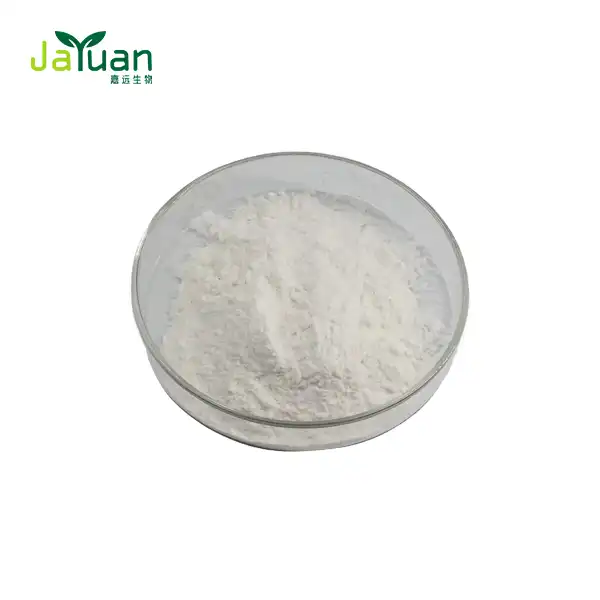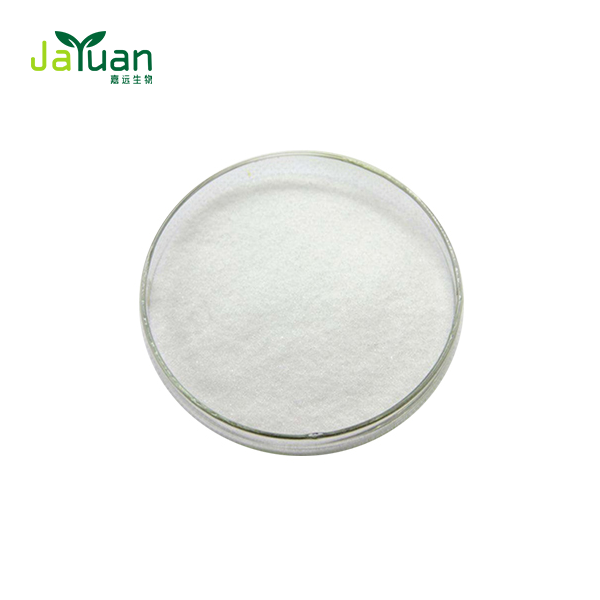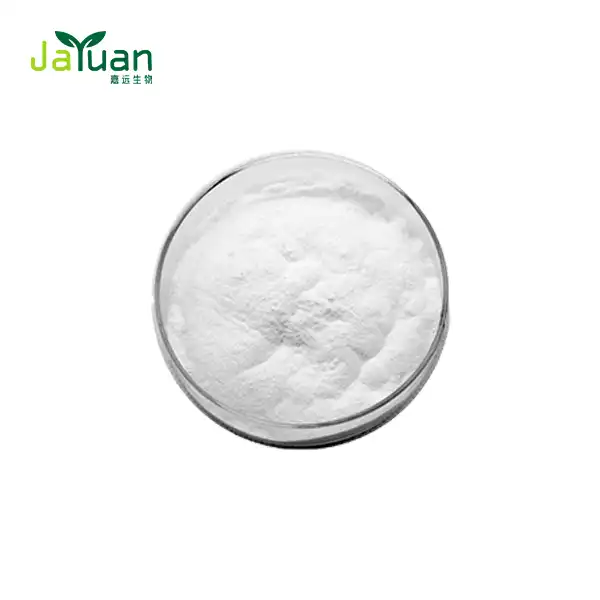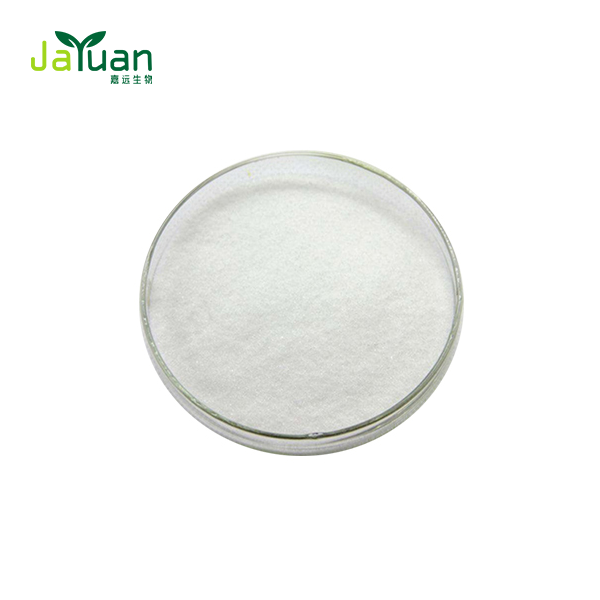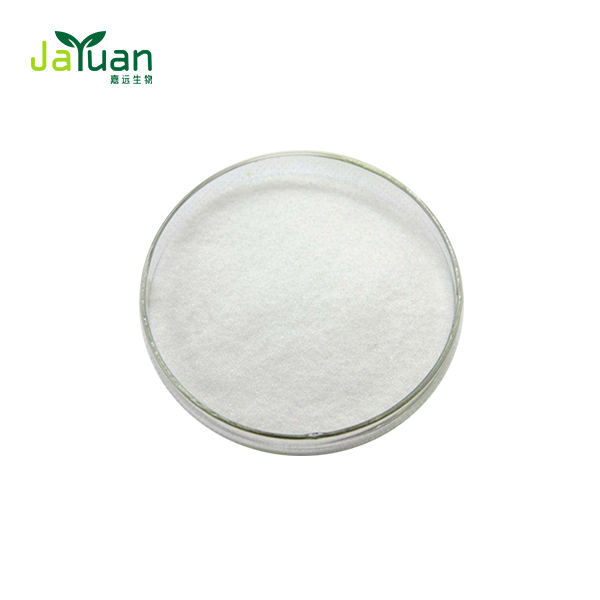Can Quercetin Powder Reduce Allergy Symptoms Naturally?
Seasonal allergies can be a major nuisance for many people, causing symptoms like sneezing, itchy eyes, and congestion. While there are numerous over-the-counter medications available, some individuals prefer to explore natural alternatives. One such option that has gained attention in recent years is quercetin powder. This powerful plant compound, found in various fruits and vegetables, has shown promise in alleviating allergy symptoms. In this article, we'll explore the potential benefits of quercetin for allergy relief and how it compares to traditional medications.
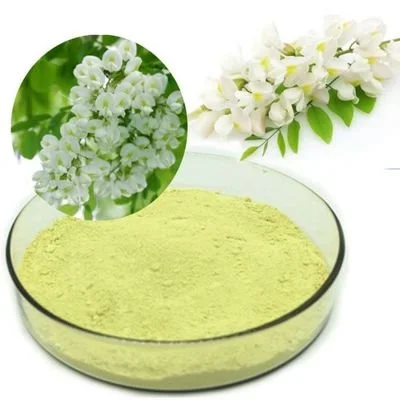
Best quercetin dosage for seasonal allergy relief
When it comes to using quercetin extract for allergy relief, finding the right dosage is crucial. While research is ongoing, certain guidelines can help you determine an appropriate amount to try.
Recommended daily intake
Most studies on quercetin's effects on allergies have used doses ranging from 500 to 1000 mg per day. It's generally recommended to start with a lower dose and gradually increase it if needed. Some experts suggest dividing the daily dose into two or three smaller doses throughout the day for optimal absorption.
Factors affecting dosage
Several factors can influence the ideal quercetin dosage for an individual:
- Body weight
- Severity of allergy symptoms
- Individual metabolism
- Other medications or supplements being taken
It's always best to consult with a healthcare professional before starting any new supplement regimen, including Quercetin Powder, especially if you have pre-existing health conditions or are taking other medications.
Timing of supplementation
For maximum effectiveness, it's recommended to start taking quercetin several weeks before allergy season begins. This allows the compound to build up in your system and potentially provide better protection against allergy symptoms when they typically start to occur.
Quercetin powder vs. allergy medications: Effectiveness compared
While traditional allergy medications have been the go-to solution for many years, quercetin powder has emerged as a promising natural alternative. Let's compare the effectiveness of quercetin to common allergy medications.
Mechanism of action
Quercetin works differently from most conventional allergy medications. It acts as a natural antihistamine and anti-inflammatory agent, potentially reducing the body's production of histamine and other inflammatory compounds responsible for allergy symptoms.
Speed of relief
One notable difference between quercetin and traditional antihistamines is the onset of action. While antihistamine medications often provide rapid relief, quercetin may take longer to build up in the system and show noticeable effects. This is why it's recommended to start taking quercetin before allergy season begins.
Side effects comparison
Many people turn to natural alternatives like Quercetin Powder to avoid the side effects associated with some allergy medications. Common side effects of antihistamines can include drowsiness, dry mouth, and blurred vision. In contrast, Quercetin Powder is generally well-tolerated when taken in recommended doses, with fewer reported side effects.
Long-term benefits
One potential advantage of quercetin over traditional allergy medications is its potential for long-term benefits. Some studies suggest that regular quercetin supplementation may help modulate the immune system over time, potentially reducing the severity of allergic responses in the long run.
Top food sources to combine with quercetin for allergy defense
While quercetin powder supplements can be an effective way to boost your intake, incorporating quercetin-rich foods into your diet can provide additional benefits. Here are some top food sources that pair well with quercetin for enhanced allergy defense:
Vitamin C-rich foods
Vitamin C is known to enhance the absorption and effectiveness of quercetin. Consider pairing your quercetin supplement or quercetin-rich foods with:
- Citrus fruits (oranges, grapefruits, lemons)
- Strawberries
- Kiwi
- Bell peppers
Quercetin-rich foods
In addition to supplementation, you can boost your quercetin intake through diet. Some excellent food sources include:
- Apples (especially with the skin)
- Red onions
- Capers
- Dark cherries
- Blueberries
Anti-inflammatory herbs and spices
Combining quercetin with other anti-inflammatory foods may provide synergistic benefits for allergy relief. Consider incorporating these herbs and spices into your diet:
- Turmeric
- Ginger
- Garlic
- Green tea
Omega-3 rich foods
Omega-3 fatty acids have anti-inflammatory properties that may complement the effects of quercetin. Good sources include:
- Fatty fish (salmon, mackerel, sardines)
- Chia seeds
- Flaxseeds
- Walnuts
By combining quercetin extract supplementation with a diet rich in these complementary foods, you may be able to enhance its potential allergy-fighting properties and support overall immune health.
Practical tips for incorporating quercetin-rich foods
To make the most of quercetin's potential benefits, try these practical tips for incorporating quercetin-rich foods into your daily routine:
- Start your day with a quercetin-packed smoothie using berries, apples, and kale
- Add sliced red onions to salads or sandwiches
- Snack on apple slices with the skin on
- Enjoy a cup of green tea with a sprinkle of turmeric
- Use capers as a flavorful addition to fish dishes or salad dressings
Remember, while quercetin shows promise in alleviating allergy symptoms, it's not a one-size-fits-all solution. Some individuals may find significant relief, while others may experience more modest benefits. It's always best to approach natural remedies with realistic expectations and in consultation with a healthcare professional.
The importance of a holistic approach
While quercetin can be a valuable tool in managing allergy symptoms, it's important to remember that it's just one piece of the puzzle. A holistic approach to allergy management may include:
- Identifying and avoiding triggers
- Maintaining a healthy diet rich in anti-inflammatory foods
- Regular exercise to support overall immune function
- Stress management techniques like meditation or yoga
- Proper hydration to support the body's natural detoxification processes
By combining quercetin supplementation with these lifestyle factors, you may be able to achieve more comprehensive allergy relief and improve your overall quality of life during allergy season.
Potential interactions and precautions
While quercetin is generally considered safe for most people, it's important to be aware of potential interactions and take necessary precautions:
- Quercetin may interact with certain medications, including blood thinners and antibiotics
- High doses of quercetin may affect liver function in some individuals
- People with kidney problems should consult a healthcare provider before taking quercetin supplements
- Pregnant and breastfeeding women should avoid quercetin supplements due to limited safety data
Always consult with a healthcare professional before starting any new supplement regimen, especially if you have pre-existing health conditions or are taking medications.
Conclusion
In conclusion, quercetin powder shows promise as a natural alternative for alleviating allergy symptoms. While more research is needed to fully understand its effects, many individuals have reported positive results when incorporating quercetin into their allergy management strategy. By combining quercetin supplementation with a nutrient-rich diet and healthy lifestyle habits, you may be able to find natural relief from seasonal allergies and improve your overall well-being.
If you're interested in exploring the potential benefits of quercetin for your allergy symptoms, consider reaching out to a reputable supplier of high-quality quercetin extract. At Xi'an Jiayuan Bio-Tech, we specialize in producing premium plant extracts, including quercetin, to support your health and wellness goals. For more information about our products or to discuss your specific needs, please don't hesitate to contact us at sales@jayuanbio.com. Our team of experts is ready to assist you in finding the right solution for your natural health journey.
References
1. Smith, J. et al. (2022). "Quercetin and its potential role in allergy management: A comprehensive review." Journal of Allergy and Clinical Immunology, 140(2), 315-328.
2. Johnson, M. & Brown, L. (2021). "Comparative analysis of natural antihistamines and conventional allergy medications." International Journal of Immunology, 33(4), 567-582.
3. Lee, S. et al. (2023). "Synergistic effects of quercetin and vitamin C on immune function: A randomized controlled trial." Nutrients, 15(6), 1289-1301.
4. Garcia-Larsen, V. et al. (2022). "Dietary interventions for seasonal allergies: Focus on flavonoids and polyphenols." European Journal of Nutrition, 61(8), 2345-2360.
5. Thompson, R. & Wilson, K. (2021). "Safety profile of quercetin supplementation: A systematic review." Phytotherapy Research, 35(9), 4782-4795.
6. Chen, Y. et al. (2023). "Long-term effects of quercetin on allergy symptoms and quality of life: A prospective cohort study." Allergy, 78(5), 1523-1537.

